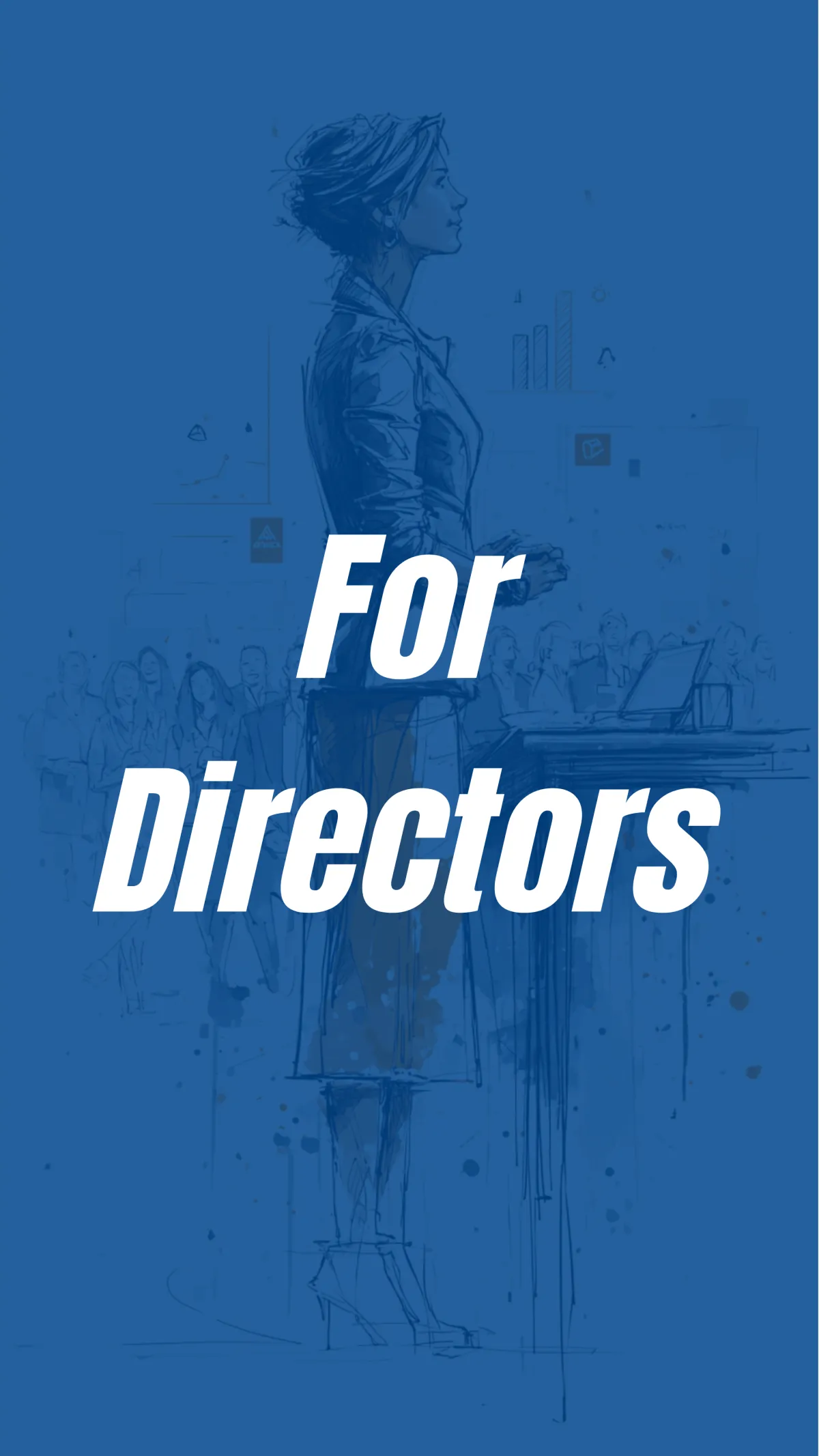
How Can Agents Optimize Their Peak Performance Hours?
Feeling like there just aren't enough hours in the day? You're not alone. Many real estate agents struggle with juggling client calls, showings, paperwork, and marketing, wondering 'How can agents optimize their peak performance hours?' It's a constant balancing act, trying to squeeze maximum agent productivity out of every minute.
But what if you could work smarter, not just harder, by tapping into your natural energy rhythms? Understanding the answer to "How can agents optimize their peak performance hours is vital for sustained success and avoiding burnout in this demanding field, ultimately impacting client satisfaction and customer retention.
Think about your typical workday. Are there times when you feel laser-focused, powering through tasks, and other times when staring at your screen feels like wading through mud? Most people experience natural cycles of energy and focus throughout the day. Identifying these peak hours is the first step toward leveraging them for better results and an improved customer experience.
Ignoring these cycles often leads to frustration, inefficiency, and subpar service quality. This isn't about adding more hours; it's about making the hours you have count more, improving your overall agent performance. It involves self-awareness, strategic planning, and protecting your most productive time like the valuable asset it is for delivering exceptional customer service.
Unlock your potential with AI-powered solutions tailored to your real estate needs. Save time, grow faster, and work smarter. Schedule your discovery session now at lesix.agency/discovery.
Understanding Your Personal Energy Cycle
Before you can optimize anything, you need to understand your baseline energy flow. When do you feel most alert, creative, and driven? When does the afternoon slump usually hit, affecting your ability to handle customer inquiries effectively?
Becoming a student of your own energy patterns is fundamental to improving agent efficiency. Paying attention helps you structure your day for maximum impact. This self-awareness forms the foundation of effective workforce management, even if you're a workforce of one.
Track Your Energy Levels
For a week, try keeping a simple energy log. Every hour or two, rate your energy level on a scale of 1 to 10 and note what task you were performing. This tracking helps you see correlations between specific times, activities, and your ability to focus or feel motivated.
Were you sharpest right after your morning coffee, or did your focus peak mid-morning allowing for quicker contact resolution? Did administrative tasks drain you quickly after lunch, increasing the handling time for simple jobs? This collected historical data gives you objective insight, moving beyond just gut feelings and allowing you to identify areas for improvement.
Understanding your chronotype—whether you're an early bird, night owl, or somewhere in between—also plays a significant role. Aligning your schedule with your natural disposition reduces friction and boosts productivity. There are even online quizzes and resources that can help you determine your chronotype if you're unsure.
Identify Your Prime Time
After tracking for a week or so, patterns should emerge clearly. You'll likely spot a 2-4 hour window where your energy and focus are consistently highest; these are your peak hours. This is your golden window for tackling the most important tasks that drive your business forward.
For some service agents, this might be 9 AM to 11 AM, perfect for proactive client outreach. For others, it could be 2 PM to 5 PM, ideal for focused negotiation or presentation preparation. There's no universally right answer; it's about discovering what works best for your biological clock and structuring your work accordingly.
Protect this prime time fiercely. It's when you have the greatest potential to make significant progress on your goals and deliver high service quality. Recognizing and guarding this period is a performance key unlocker.

Strategic Task Matching: Aligning Work with Energy
Once you know your high-energy and low-energy periods, the next step is aligning your tasks accordingly. Not all real estate activities demand the same level of mental horsepower or intense focus. Matching task type to your current energy level makes a world of difference in agent productivity and reduces feelings of overwhelm.
This strategic resource allocation ensures you use your best energy for the work that matters most, like improving customer satisfaction, closing deals, and lead generation. It minimizes the wasted effort of trying to force complex work when you're feeling drained. This approach enhances overall effectiveness throughout the entire day.
High-Impact Tasks During Peak Hours
Your most important, mentally demanding tasks should be scheduled during your peak performance window. What are these 'high-impact' activities for a real estate agent? Think activities that directly generate revenue, build your brand, handle complex issues, improve customer satisfaction, or move your business strategy forward.
Examples include:
Proactive lead generation calls or focused follow-up with potential clients.
Negotiating offers and counteroffers, requiring sharp focus and strategic thinking.
Developing and preparing compelling listing presentations for sellers.
Writing persuasive property descriptions and marketing copy.
Strategic planning for your business growth, market analysis, or goal setting.
Engaging in deep learning or skill development through training modules.
Addressing serious customer concerns requiring careful thought and communication.
Doing these when you're sharpest leads to better quality work, faster completion times (lower average handle time for complex tasks), and more efficient progress. You'll likely find you make fewer errors and achieve better outcomes, directly impacting your key performance indicators. This focus helps push your most important goals forward and ensures you can handle customer interactions demanding full attention.
Concentrating these efforts enhances your ability to meet customer needs effectively during critical moments. It allows you to dedicate your best mental resources to activities that influence customer satisfaction scores and potential promoter scores. Ultimately, this focus contributes positively to your overall performance metrics.
Lower-Energy Tasks During Slumps
What about those times when your energy naturally dips, like the post-lunch lull? This is the perfect time for less demanding, routine tasks that still need doing but don't require intense focus or creativity. Trying to force complex work during these periods is often counterproductive and can increase errors or time spent on task.
Consider scheduling these activities during your lower energy phases:
Responding to non-urgent emails and routine client inquiries.
Organizing your client relationship management (CRM) system or updating contacts.
Scheduling appointments, showings, or inspections.
Processing paperwork, filing documents, or managing transaction checklists using management software.
Catching up on industry trends, reading real estate news, or browsing relevant articles.
Light social media activity, like sharing pre-written content or engaging briefly.
Reviewing your schedule for the next day or organizing your desk.
Listening to relevant podcasts or industry updates while doing simple administrative work.
Placing these tasks strategically prevents your low-energy periods from becoming totally unproductive. It keeps the administrative wheels turning without demanding peak brainpower, reducing overall customer effort required if they are waiting on simple updates. This feels much better than fighting through mental fog and helps maintain momentum throughout the day, contributing to better time management for time agents.
To visualize this better, consider a simple breakdown:

Using a framework like this helps agents identify how to best allocate their time based on internal energy flows. This leads to smoother workflows and improved agent performance. It helps measure agent productivity not just by hours worked, but by results achieved.
Time Blocking: Creating Structure for Your Day
Knowing your energy cycles and matching tasks is a great start, but without structure, distractions can still derail your day. Time blocking is a powerful technique where you schedule specific blocks of time for particular types of tasks or activities. It's like creating appointments with yourself for your most important work, enhancing agent efficiency.
This method turns intentions into concrete plans on your calendar. It reduces decision fatigue throughout the day because you already know what you should be working on. Implementing time blocking is a core component of effective personal workforce management.
Schedule Everything (Even Breaks)
Look at your calendar and block out chunks of time for the specific activities identified in the previous step, aligning them with your energy levels. Be realistic about how long tasks take; underestimating can lead to frustration and a constantly disrupted schedule. Critically, schedule your peak performance window for those high-impact tasks that require your best focus.
Don't forget to schedule breaks, lunch, and even buffer time between appointments or tasks. Regular breaks can actually boost overall productivity, focus, customer experience, and service quality, preventing burnout. Ignoring breaks leads to diminishing returns, potentially increasing average handle time for tasks later in the day and negatively affecting your ability to meet customer needs effectively.
Your calendar might look something like this, adjusted for your personal peak hours:
8:00 AM - 8:30 AM: Review daily schedule, set priorities, goal setting for the day.
8:30 AM - 9:00 AM: Respond to urgent emails & critical customer inquiries.
9:00 AM - 11:30 AM: Peak Time Block - Focused Lead Generation & Follow-Up Calls (minimize talk time per call while maximizing impact).
11:30 AM - 12:00 PM: Prepare for afternoon listing appointment, review comps.
12:00 PM - 1:00 PM: Lunch & Mental Break (step away from work).
1:00 PM - 2:30 PM: Listing Appointment (focused customer interaction).
2:30 PM - 3:30 PM: Post-Appointment Follow-up emails, update CRM, administrative tasks (lower energy work).
3:30 PM - 4:00 PM: Short Break / Review performance metrics for the day so far.
4:00 PM - 5:00 PM: Return non-urgent calls, plan priorities for tomorrow, check industry trends.
Adjust this based on your own energy cycles, client demands, and business priorities. The key is intention and creating a structure that supports your agent productivity goals. Consistently monitor progress against your schedule and refine it as needed.
Stick to the Schedule (Mostly)
A schedule is only useful if you make a genuine effort to follow it. Treat these time blocks like firm appointments with your most important client: yourself and your business goals. When it's time for focused lead generation, dedicate yourself solely to that activity.
Avoid checking email, scrolling social media, or getting sidetracked by notifications unless it's part of the scheduled block. This discipline is crucial for maximizing the benefits of time blocking. Protecting these blocks improves your contact resolution speed for important tasks.
Of course, the life of a real estate agent is inherently unpredictable; urgent client needs and unexpected opportunities will arise, sometimes impacting wait times for other clients. Build flexibility into your system – perhaps leave some unscheduled gaps or have pre-planned adjustments for disruptions. Strive to protect your core blocks, especially your peak performance time, as fiercely as possible.
If you get derailed by an urgent matter, don't just abandon the schedule for the rest of the day. Address the urgency, then assess how to get back on track. Reschedule the missed block for later that day or the next day if necessary, ensuring important work doesn't fall through the cracks.
How Can Agents Optimize Their Peak Performance Hours Using Tools and Delegation?
You don't have to, and shouldn't try to, do everything yourself, especially low-value tasks that consume precious time. Leveraging technology and effective delegation is a smart strategy to free up your time and mental energy, as well as improve customer satisfaction. This allows you to focus more of your peak hours on activities that generate revenue and provide exceptional customer service.
Answering the question, How can agents optimize their peak performance hours, often involves strategically getting help, whether from software or people. This enhances optimization and implementing the right support systems is critical.
Embrace Automation Tools
Modern technology offers fantastic ways to automate or streamline repetitive, time-consuming tasks, freeing up your mental bandwidth. Consider using tools and management software for:
Email Marketing & Communication: Platforms can automate newsletters, market updates, follow-up sequences for leads (drip campaigns), improving consistency without manual effort.
Social Media Scheduling: Tools allow you to batch create and schedule posts across multiple platforms in advance, maintaining visibility during low-energy periods.
CRM Automation: Many Customer Relationship Management systems can automate reminders for follow-ups, send template emails based on triggers, manage task lists, and track customer interactions efficiently. Using your CRM effectively is vital for measuring agent performance.
Transaction Management Software: Digital platforms streamline the complex process of managing documents, deadlines, and communication involved in a real estate transaction, reducing errors and improving quality assurance.
Appointment Scheduling: Tools can allow clients to book showings or calls directly into available slots in your calendar, reducing back-and-forth communication and potential wait times.
Document Signing: E-signature platforms expedite the signing process for contracts and disclosures.
Investing time upfront to learn and set up automation tools saves countless hours down the line. These reclaimed hours can then be reinvested into your peak performance activities like negotiation, client strategy sessions, or handling complex issues. Effective use of contact center technology equivalents for agents improves overall business operations and improves customer satisfaction.
Delegate Effectively
Critically evaluate your task list. Are there tasks you consistently do, perhaps even during your peak hours, that someone else could handle effectively? This might include certain administrative work, creating marketing materials like flyers or social media graphics, initial lead qualification or screening, coordinating vendors, or managing your database.
Consider hiring help, such as an administrative assistant (virtual or in-person), a transaction coordinator, or a marketing specialist. Delegation isn't just for large teams or established brokers. Even solo agents can leverage virtual assistants (VAs) for specific projects or a set number of hours per week for ongoing support, forming a small support team.
Learning to delegate effectively is a skill that requires clear communication, trust, and letting go of control over every small detail. Mastering it, however, significantly multiplies your productivity and earning potential. Clearly define tasks, set expectations, provide necessary resources (like access to a knowledge base or standard operating procedures), and offer feedback for the best results.
Think especially about tasks that drain your energy or that you procrastinate on, even if they seem simple. Delegating these can preserve your mental resources for more critical activities later in the day, like providing thoughtful customer support or strategic decision-making. Empowering agents through delegation allows them to focus on their core strengths.
Protecting Your Focus: Minimizing Distractions
Optimizing peak performance hours isn't just about smart scheduling and task management; it's also about creating an environment conducive to deep, focused work. Distractions are notorious productivity killers, especially during your prime time when you need concentration most. You need active strategies to defend your focus and maximize the time spent on high-value activities.
Every interruption, even small ones, carries a cognitive cost, forcing your brain to switch contexts and then refocus. Protecting your attention allows for higher quality work and reduces the likelihood of errors. This focus directly contributes to better service quality and client satisfaction.
Control Your Digital Environment
Smartphones, tablets, and computers are essential tools for any modern service agent, but they are also major sources of endless distraction. During your scheduled focus blocks, take deliberate control over your digital world:
Turn off all non-essential notifications – email pop-ups, social media alerts, news updates, instant messages. Schedule specific times to check these channels instead.
Close unnecessary browser tabs that aren't related to your current task. The temptation to click can be strong.
Consider using website blocker apps or browser extensions (like Freedom or Cold Turkey) if you struggle with habitual online distractions during work time.
Put your smartphone on silent, 'Do Not Disturb,' or even place it out of sight to remove the visual cue and temptation.
Dedicate specific times for communication tasks rather than letting them interrupt focused work.
Communicate your focus strategy. Let colleagues, team members (if applicable), or even family know about your dedicated focus times so they understand you might be less responsive temporarily. Frame it positively: explain that this dedicated time allows you to concentrate fully on important work, enabling you to better serve clients and meet business goals in the long run.
Monitoring your real-time performance can sometimes be aided by tools that track time spent on different applications, helping you identify your biggest digital time-wasters. Agents identify these patterns and can take steps to change them.
Manage Physical Interruptions
If you work in a busy office environment, physical interruptions from colleagues stopping by can disrupt your flow state. If possible, find a quiet space like an empty conference room or a designated quiet zone during your peak hours. Using noise-canceling headphones, even if you're not listening to anything, can serve as a visual cue to others that you're concentrating and shouldn't be disturbed unnecessarily.
Working from home presents its own set of potential interruptions from family members, pets, or household chores. Establish clear boundaries regarding your work hours and dedicated focus periods. A closed door can be a simple but effective signal that you need uninterrupted time for tasks requiring high concentration.
Structure your environment to support focus. Keep your workspace organized and free of clutter. Having everything you need for your planned task readily available prevents you from needing to get up and search for things, which can break concentration.
The Role of Health and Wellness
Your physical and mental state profoundly impacts your energy levels, cognitive function, and overall agent performance. Neglecting health and wellness is fundamentally counterproductive to optimizing performance and achieving sustained success. Consistent healthy routines outside of work build the resilience needed for demanding days and improve your ability to handle customer concerns effectively.
Think of wellness not as a luxury, but as a foundational element of your professional toolkit. Better health translates directly to better focus, stamina, and decision-making. These improvements are reflected in key performance indicators and client feedback.
Prioritize Sleep

This might seem obvious, but in a demanding career, sleep is often the first thing sacrificed. Consistent, quality sleep is non-negotiable for peak cognitive function, memory consolidation, and emotional regulation. Most adults need 7-9 hours per night for optimal health and performance.
Establish a regular sleep schedule, going to bed and waking up around the same time each day, even on weekends, to regulate your body's internal clock. Create a relaxing bedtime routine – avoid screens, heavy meals, and stressful activities before bed. Poor sleep directly impacts focus, judgment, patience, and mood – all critical attributes for a successful real estate service agent interacting with clients.
Lack of sleep can increase handle time for tasks, reduce problem-solving ability when dealing with complex issues, and negatively affect the overall customer experience you provide. Consider sleep a crucial part of your work preparation.
Fuel Your Body and Mind
What you eat and drink significantly matters for sustained energy throughout the day. Stay well-hydrated by drinking plenty of water, as even mild dehydration can cause fatigue, headaches, and brain fog. Keep a water bottle handy and sip frequently.
Pay attention to your diet. Avoid heavy, processed meals, especially before your peak performance time or important client meetings, as they can lead to sluggishness and energy crashes. Focus on balanced meals with lean protein, complex carbohydrates, and healthy fats for steady energy release.
Regular physical exercise is also a powerful energy booster and improves mental clarity, focus, and stress resilience. Find an activity you enjoy – walking, jogging, cycling, swimming, yoga – and incorporate it into your routine regularly. Even short bursts of activity, like a brisk walk during a scheduled break, can wake up your brain and improve your mood.
Consider movement breaks part of your strategy to manage energy slumps. Proper nutrition and exercise directly support agent productivity. Think of them as investments in your professional capacity.
Manage Stress
The real estate profession inherently involves pressure, uncertainty, and emotional situations, making stress management critical. Chronic, unmanaged stress drains energy reserves, impairs cognitive function, hinders decision-making, and can lead to burnout, impacting performance metrics and job satisfaction.
Implement proactive stress management techniques into your daily or weekly routine. This could include short meditations, deep breathing exercises (easily done between calls or appointments), mindfulness practices, spending time in nature, or engaging in hobbies completely unrelated to work.
Taking short, intentional breaks throughout the workday to step away, stretch, or clear your head can prevent stress from accumulating to overwhelming levels. Recognizing your personal stress triggers is the first step toward developing effective coping strategies. Training opportunities or workshops on stress management can also be beneficial.
Managing stress improves your ability to handle difficult customer interactions calmly and professionally, find creative solutions to complex issues, and maintain a positive attitude, all contributing to better customer service and potentially higher satisfaction scores. Addressing knowledge gaps in stress management techniques can be very valuable.
Conclusion
How can agents optimize their peak performance hours? Optimizing your peak performance hours isn't a magical fix accomplished overnight but rather an ongoing process of self-discovery, strategic planning, and consistent adjustment.
By understanding your natural energy rhythms, aligning tasks strategically with those rhythms, implementing disciplined time blocking, leveraging helpful tools and delegation, actively protecting your focus from distractions, and prioritizing your physical and mental well-being, you can significantly boost your productivity and effectiveness.
Optimizing your peak performance hours allows you to achieve more meaningful results in the time you have, reducing wasted effort and enhancing your overall performance as a real estate agent. This leads to improved customer satisfaction, stronger client relationships, higher customer retention, and ultimately, a more sustainable and rewarding career in the competitive real estate landscape.
Stop fighting against your natural energy cycles and start working intelligently with them to unlock your full potential and consistently meet customer expectations. Begin tracking your energy today and take the first step towards mastering your most productive time.
Ready to take your real estate success to the next level? Schedule your discovery session today at lesix.agency/discovery. Stay ahead with tips and insights—subscribe to our newsletter at lesix.agency/newsletter.










